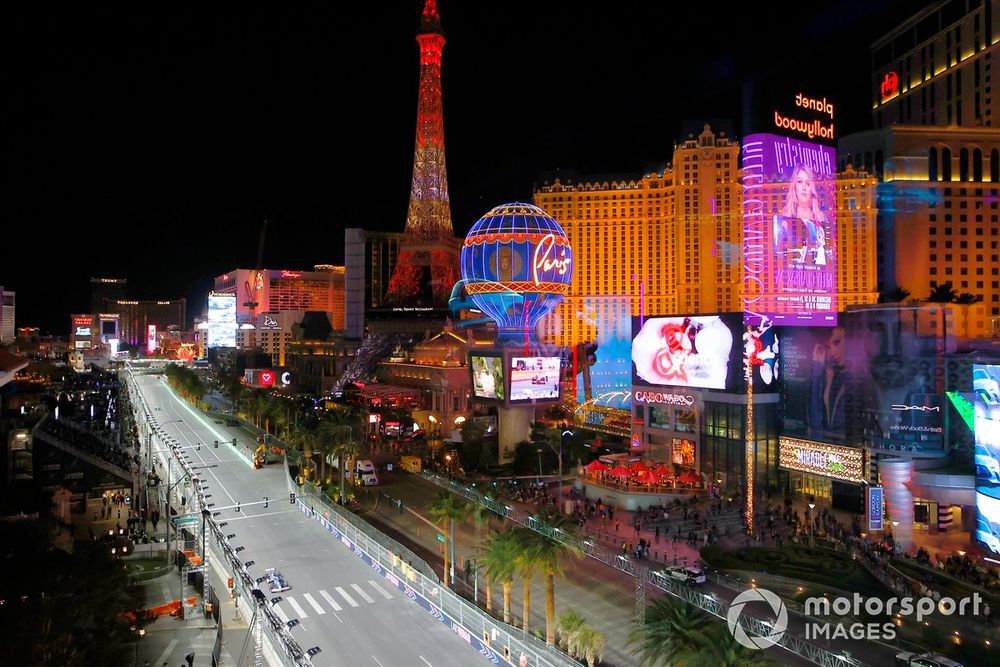“November in Las Vegas is typically the eighth-best month of the year; November last year was the second-best month in our history,” reveals Steve Hill, the president of the Las Vegas Convention and Visitors Authority in a statement hammering home the financial impact of Formula 1’s debut on the Strip.
With a promise that the concerns of the local community have been listened to and addressed in time for this weekend’s 2024 race, Vegas is once again ready to welcome the F1 circus into town with open arms.
Little wonder, given Hill’s explanation of just how big a splash the world championship made into the Bellagio fountains, a not insignificant drop into the vast ocean of money that Vegas brings in over the course of a year.
According to the Statista Research Department, Nevada-based casinos generated $10.92 billion during the 2023 fiscal year, so even in the relative slump of November, revenue is impressive. But F1 drove it to even greater heights.
“It turned what is one of the worst weekends of the year to one of the best weekends we’ve ever had, and that’s pretty phenomenal,” said Hill, pointing out that the Thanksgiving holiday, which was the week after the race, is notoriously a relatively fallow period for Vegas.
“What we’re all doing is trying to find that balance point with the sustainability of the race in Las Vegas, so that everybody involved is thrilled to have that.
“That’s really the definition, ultimately, of success. We’re not probably going to be able to compete with year one numbers again, and don’t need to in order for it to be successful.
“If the numbers were half that, it would still be a game-changer.
Esteban Ocon, Alpine A523
Photo by: Andy Hone / Motorsport Images
“The economic impact was the biggest we’ve ever had. The fiscal impact, the taxes generated by the race were the biggest thing that’s ever happened in Nevada. That matters.”
A debut race with a 10-month run-up, as tickets went on sale early to pull in as many fans as possible, clearly helped in making the 2023 race the single largest sporting event in Las Vegas history.
Over the course of the weekend, a reported 316,000 people passed through, resulting in an economic impact approaching $1.5 billion. Meanwhile, visitors to the race spent over $880 million, an average spend per person of more than three and a half times the typical Vegas visitor.
State, County and Local governments brought in tax…
Click Here to Read the Full Original Article at Autosport.com – Formula 1 – Stories…

